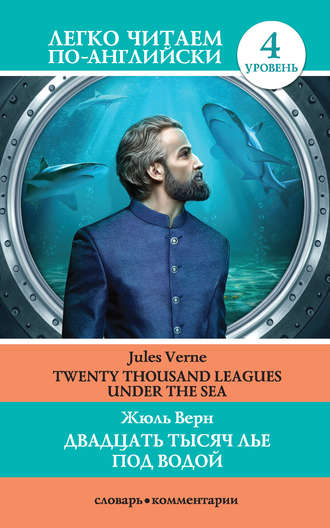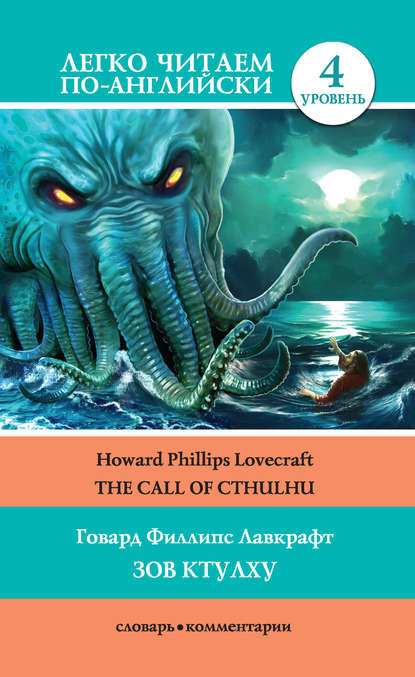Двадцать тысяч лье под водой / Twenty Thousand Leagues Under the Sea

Полная версия
Двадцать тысяч лье под водой / Twenty Thousand Leagues Under the Sea
Жанр: книги о путешествияхзарубежная классикаизучение языкованглийский языклексический материалтекстовый материалфранцузская классикаUpper-Intermediate levelадаптированный английскийзнания и навыкиклассика жанраклассика приключенческой литературыкниги для чтения на английском языке
Язык: Английский
Год издания: 2019
Добавлена:
Серия «Легко читаем по-английски»
Настройки чтения
Размер шрифта
Высота строк
Поля
Конец ознакомительного фрагмента
Купить и скачать всю книгу











